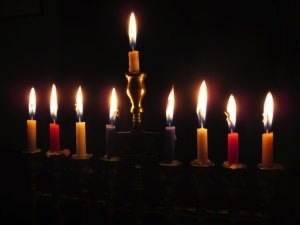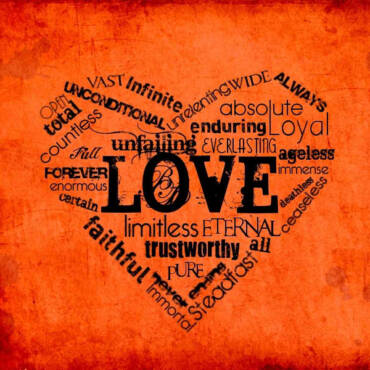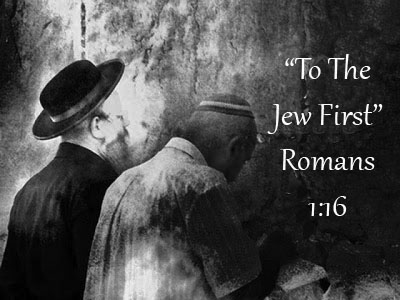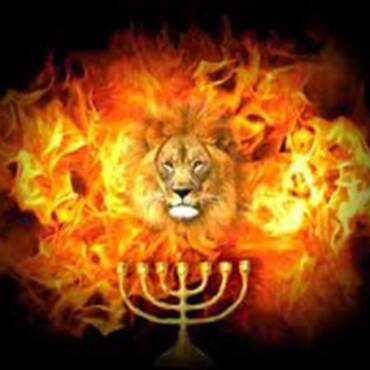The Festival of Hanukkah!

By Sam Nadler
Hanukkah, or the Feast of Dedication, is more than a ‘gift-giving Jewish alternative to Christmas.’ Hanukkah is a joyous holiday that celebrates the victory God gave our people on Kislev (Nov./Dec. 25, 165 BC through the heroic, God anointed efforts of the faithful Maccabee family.
Hanukkah Festivities
Among the festivities and symbols associated with Hanukkah, one of the best-known is the children’s game called Dreidel. A dreidel is a four-sided top with a Hebrew letter on each side. The four letters are: nun, gimel, hey and shin, which form the acrostic for the phrase, “A Great Miracle Happened There.” In Israel, the dreidel is a little different. The last letter is changed to pay, meaning, “A Great Miracle Happened HERE!” To play the game, the children spin the top, remembering the historical event, when once again, our people were saved from destruction.
During the eight days of Hanukkah, there is a menorah that is lit as well. The Hanukkah menorah is called a Hanukiyah and has nine candleholders rather than seven. Eight of the candles represent each night of Hanukkah, and the ninth candle is called the Shamash, which is Hebrew for servant. The Shamash, or servant candle is lit first and is then used to light the other candles, increasing by one more each night. Foods traditionally enjoyed on Hanukkah include: Latkes (potato pancakes fried in oil, my favorite) and in Israel, jelly donuts (my wife, Miriam’s favorite). Though considered by many as simply a Jewish holiday, Hanukkah contains profound biblical truths for all people to seriously consider.
A Little History Lesson
Hanukkah was established as a memorial to the purification and rededication of the temple in Jerusalem. This cleansing was necessary due to its defilement three years earlier. Antiochus Epiphanes, the king of Syria, had captured Jerusalem, plundered the temple treasury, and to add insult to injury, had profaned the temple by sacrificing a pig to Zeus on the temple altar. His attempt to Hellenize Judea resulted in what is called the Maccabean revolt. Led by Judah Maccabee, the Israelis resisted and fought against the occupying Syrian army. After three years, they defeated the Syrians and liberated their Jewish people.
The Legend of the Oil
Hanukkah is thought, by many people, to be eight days long because of a legend regarding the oil in the Temple. According to this tradition, when the Maccabees recaptured and rededicated the Temple, they attempted to light the Temple menorah. This menorah, which was to burn continually, represented the eternal light of God. But alas, there was only enough oil to last for one day. According to the legend, when the Temple was rededicated, the oil miraculously lasted not one, but eight days. Actually the legend of the oil is not historically accurate, but developed during the Roman occupation (c. 100 BC – AD 100), long after the events occurred. Why? Perhaps to avoid the ‘warlike aspects’ of the holiday, the legend of the oil became popular. After all, celebrating the overthrow of your oppressors would have been perceived as “politically incorrect” by the Roman army, and would likely have caused more unwanted trouble for the Israelis of the day.
The Eight Days of Hanukkah
Actually, Hanukkah is celebrated for eight days because when the Temple was rededicated for holy worship, the great feast of Sukkot was already past.
“It happened that on the same day on which the sanctuary had been profaned by the foreigners, the purification of the sanctuary had been profaned by the foreigners, the purification of the sanctuary took place, that is, on the twenty-fifth day of the same month, which was Kislev. They celebrated it for eight days with rejoicing, in the manner of the festival of booths, remembering how not long before, during the festival of booths, they had been wandering in the mountains and caves like wild animals” (2 Maccabees 10:5,6). Hanukkah, therefore was considered a ‘second Sukkot’ to the victorious army.
Messiah Celebrated Hanukkah!
You may find it surprising that the only place in the Bible where the festival of Hanukkah is specifically mentioned is in the New Covenant: “And it was at Jerusalem, the Feast of Dedication (Hanukkah), that it was winter and Yeshua walked in the temple in Solomon’s Colonnade” (John 10:22, 23). Messiah identified Himself with Hanukkah because the holiday pictured the essence of His work and His desire. As the defiled Temple was unusable for holy service or worship, so this also pictures us. God created us in His image that we might fellowship and represent Him in this world. In fact, Scripture calls all believers the “Temple of the Living God.”
A Holy Temple
“Do you not know that you are a temple of God and that the Spirit of God dwells in you?…for the temple of God is holy, and that is what you are…Or do you not know that your body is a temple of the Holy Spirit who is in you, whom you have from God, and that you are not your own?” (1 Cor. 3:16, 17, 19).
“So then you are no longer strangers and aliens, but you are fellow citizens with the saints, and are of God’s household, having been built on the foundation of the Apostles and Prophets, Messiah Yeshua Himself being the cornerstone, in whom the whole building, being fitted together, is growing into a holy temple in the Lord, in whom you also are being built together into a dwelling of God in the Spirit” (Eph. 2:19-22).
“Or what agreement has the temple of God with idols? For we are the temple of the living God; just as God said, ‘I will dwell in tem and walk among them; and I will be their God and they shall be My people’” (2Cor. 6:16).
Like the Jerusalem Temple because of defilement of sin, we too, were spiritually unusable for either holy service or worship. Just as the Maccabees defeated the enemy, recaptured the Temple and cleansed and rededicated it for worship, so also Messiah came, recaptured and cleansed us and rededicated us for holy worship. Messiah, the Son of God and therefore the ‘Greater Maccabee,’ “came to destroy the works of the devil”. He made atonement for sin and set us apart unto God as a Holy Temple for both service, worship and fellowship.
Tradition & Triumph!
So this Hanukkah, be sure not only to spin the dreidel, light the Hanukkiah and eat latkes; but most importantly, let us give praise to Messiah who has saved us and cleansed us in His great victory and atonement on the cross. If you will be in the Charlotte area, please join Hope of Israel Congregation on Friday evening, December 7th for our Annual Hanukkah (or Chanukkah) Celebration! Shalom!



